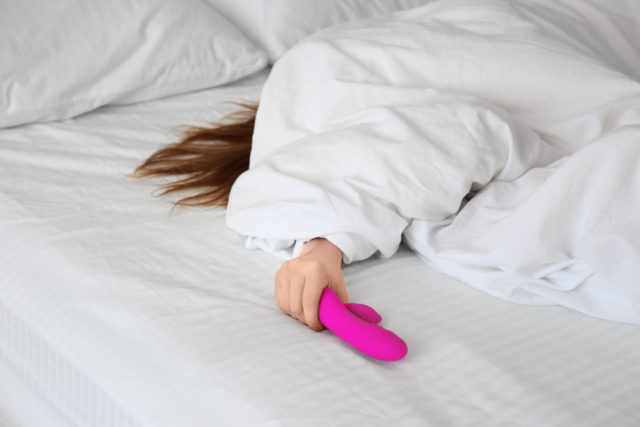Most people do it, but no one wants to talk about it. That would be too vulgar; too inappropriate—this thing is supposed to be private. But tbh, I’m tired of being shushed or told to be polite. I want to talk about it and with May being International Masturbation Month, I figured what better time than now.
An entire month dedicated to self-pleasure and solo time. It makes so much sense to me that May is the month we choose to celebrate this sacred act. The month when flowers start to bloom, life starts to come to the surface again after winter hibernation. The merry month of May has long celebrated sexual awakening.
If it weren’t for the persistence and boldness of former Surgeon General Dr. Joycelyn Elders, we may not have this celebratory month. In 1995, Dr. Elders risked everything when she said that she felt masturbation should be taught in sex ed. This statement, which shook the foundations around sexual shame and patriarchal norms, led to her forced resignation as Surgeon General.
Masturbation can be so much more than a tool for getting off and there are so many ways to explore self-pleasure. It can help you heal, get to know yourself intimately, explore how your body feels arousal and understand the way your body likes to be touched. When you know what turns you on—what gets you off— you’ll be able to communicate that with your sexual partners.
Considering masturbation the “second best” to sex with partners would be a disservice to your body. The most important sexual relationship you will ever have is with yourself. If I haven’t convinced you to whip out your vibrator for some afternoon delight yet, then maybe these 23 other reasons will help.

- Masturbation keeps your yoni healthy (yeast infections and BV, be gone!)
- Masturbation is the safest sex you can have
- Masturbation gives you an amazing natural high, a literal rush of endorphins
- Masturbation cultivates self-love
- Masturbation is an excuse to practice healthy selfishness (you’re sexy, babe!)
- Masturbation helps you have a better relationship with your desires
- Masturbation helps you feel embodiment
- Masturbation is the best way to get to know your personal sexuality
- Masturbation helps create and sustain your sexual sovereignty
- Masturbation feels good
- Masturbation can ease PMS symptoms, like cramps or back pain
- Masturbation can prevent cancer and heart disease
- Masturbation makes partnered sex more enjoyable
- Masturbation helps heal sexual core wounding and traumas
- Masturbation is a natural sleep aid and fights insomnia
- Masturbation helps you explore the many different orgasms you can have (hint: clitoral, anal, vaginal for starters)
- Masturbation can jumpstart your creativity—if you’re feeling stuck, get to pleasuring yourself
- Masturbation is easy!
- Masturbation is a great way to reconcile your relationship with porn if you maybe didn’t have the best introduction to porn as a teen
- Masturbation expands your capacity to experience pleasure
- Masturbation helps you have more orgasms more consistently
- Masturbation helps strengthen your pelvic floor muscles
- Masturbation is a great way to explore your erotic imagination
See you next week for more sex talks, babes!
***
Corinne Werder is a writer, sex educator and girl on the move currently residing in Brooklyn, NY. She looks at the world through the lens of a pleasure activist, femme-of-center queer woman. Her background in sex education comes from her volunteer work with RAINN, her work as a sexual assault/domestic violence advocate and she is currently a student at the Institute for Sexuality and Enlightenment.
Have more sex questions? Leave a comment below or email webeditor@gomag.com and come back for more every Friday!

What Do You Think?